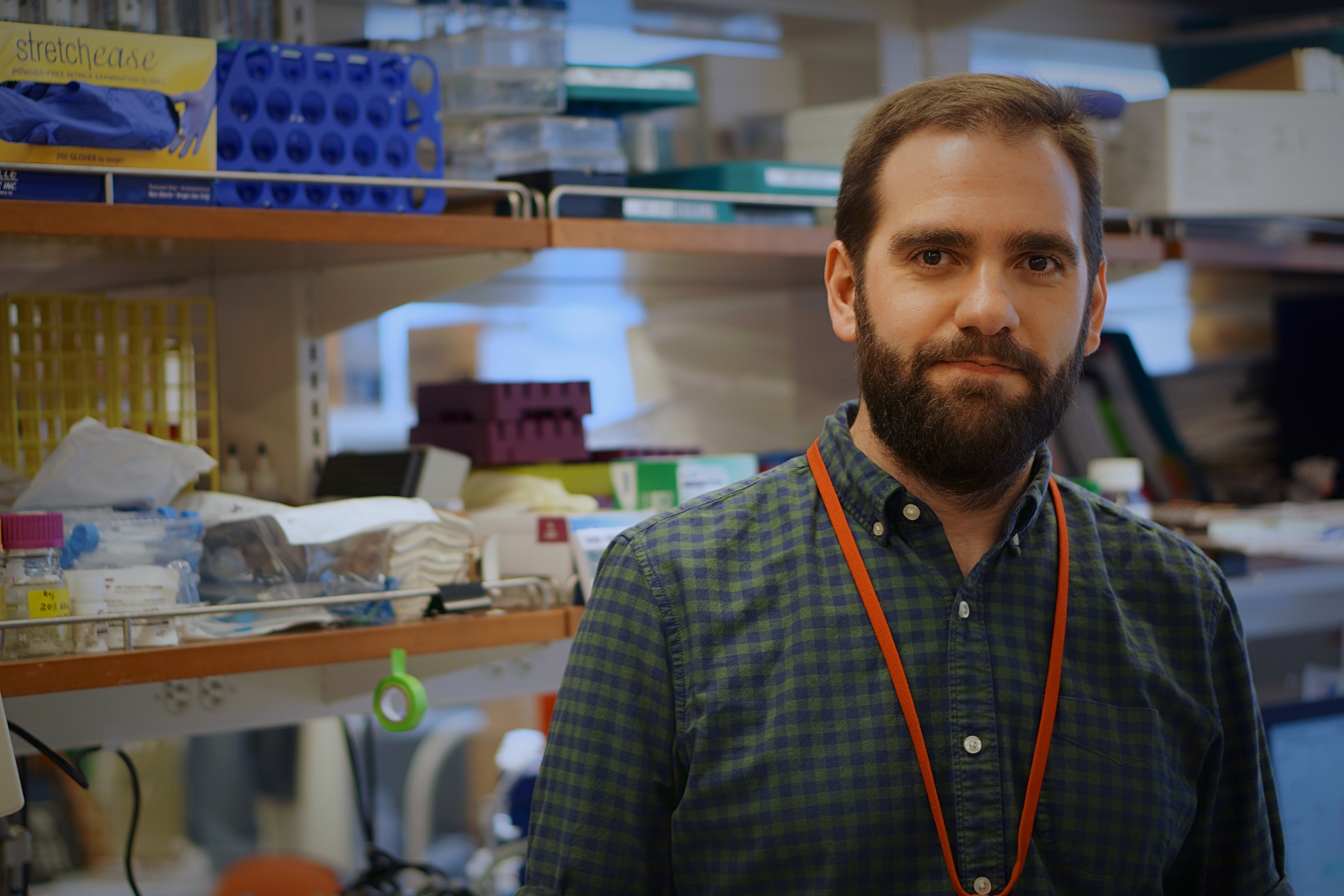
I was born and raised in Buenos Aires, Argentina, where I attended Quilmes National University to study Biotechnology and Molecular Genetics. I began my scientific career at the University of Buenos Aires studying the structure and function of a protein lost in the neurodegenerative disease Friedreich Ataxia. Pursuing a profound interest in biomedical sciences and mechanisms of disease, I transitioned to the cancer field for my PhD. I devoted a significant part of my thesis exploring pathways of metastatic dissemination, identifying clinically useful predictive biomarkers, and developing novel therapeutic tools for breast and gastric tumors. I completed my training working as a postdoctoral researcher at the Division of Hematology/Oncology at Weill Cornell Medicine (USA), where I investigated how recurrent mutations in B-cell lymphomas re-shape the epigenome and contribute to the early stages of malignant transformation.
In 2021, I joined the Terry Fox Laboratory and Centre for Lymphoid Cancer at the BC Cancer Research Institute. My goals as an independent investigator are to identify and understand the mechanisms driving the progression and dissemination of B-cell lymphomas, as a means to develop minimally invasive diagnostic tools, and novel prophylactic and curative treatments. To this end, we exploit modern high-parameter technologies to profile clinical specimens, and develop sophisticated murine and cellular models of disease to tackle profound biological questions.
Who inspired you to pursue the career you have today?I always had a curious mind and a profound interest in understanding how things (nature, technology, etc) worked. I also enjoyed spending hours working on intellectual and practical puzzles. Even though I had a strong inclination towards STEM subjects in school, it was my high-school biology teacher, Andres Lemoine, who introduced me to the principles of scientific research and encouraged me to follow my passion for biological sciences as a career.
What does a typical day look like for you and what are you currently working on?For the past few months, I have been spending most of my time setting up the lab, working on funding applications and recruiting the first members of my team. These efforts have paid off, and I now have a small group of highly motivated trainees to conduct our first experiments. One of the topics we are working on is the relationship between autoimmune disorders and B-cell lymphomas. It has been known for some time that patients with autoimmune disorders have a higher risk of developing aggressive B-cell tumors. We are particularly interested in understanding the extent and nature of the overlap in the pathogenesis of these diseases, as a means to identify tumor precursor populations and novel druggable dependencies.
Beyond exciting collaborations with other faculty members in the Department, I am really looking forward to the interactions with students through lectures, thesis supervision, thesis committees, etc. Mentoring is crucial at all stages of our scientific careers, so being able to pay the favor forward and help others find their passion or facilitate the tools to pursue it, is highly rewarding.
What did you learn as a researcher the hard way?Scientists at any stage of their career face constant challenges and, perhaps more than anything, frustration: experiments not working as planned, projects hitting multiple dead ends, rejected funding applications, etc. While these are all natural byproducts of truly innovative research endeavors, it is something that we are not necessarily made aware of, or taught how to cope with, during our academic training. In my new role as group leader, I’m particularly aware of the need to hone patience and perseverance, and to transmit this to my trainees and staff.
What do you like most about your job?There are many aspects of my job that I enjoy, starting with the fact that no one day is like another. I relish working in fast-paced and dynamic environments, where I am constantly challenged to think creatively and outdo myself. Another major perk of my work is having the opportunity to discuss science and learn from other investigators, trainees, and clinicians on a daily basis.
What publications do you regularly read?
I try to stay current with publications in the blood cancer field (e.g., Blood, Cancer Cell, Cancer Discovery, NEJM) and also B/T-cell biology (e.g., Nature Immunology, Immunity, Science Immunology). I also have a soft spot for technology-oriented journals, like Nature Biotechnology.
What motivates you at work?A close friend of mine died of leukemia when we were kids, which had a great impact in my life, and guided my ulterior decision to devote myself to cancer research. My drive has remained the same ever since: to translate mechanistic findings into the development of biomarkers and novel non-toxic therapeutic strategies, leading to effective and long-lasting responses in cancer patients.
What is your favorite thing to do when you're not working?My wife and I are newcomers to Vancouver (and Canada), so we have been enjoying our time exploring this beautiful city and all it has to offer. As a typical Argentinian, I also like playing soccer whenever I get the chance.
What books and/or podcasts are on your reading and listening lists right now? (Or what books are on your bedside table?)There are two books on my bedside table: “Lab Dynamics: Management and Leadership Skills for Scientists” by scientist Carl Cohen and psychologist Suzanne Cohen, and “Acid for the Children: A Memoir” by bass player Michael “Flea” Balzary.
What is some of the best advice you ever received?One of the most important things I took from my postdoctoral mentor, Dr Ari Melnick, is that the best and most rewarding experiments are those that, even if our hypothesis are incorrect, will still teach us something and open new paths to explore. More often than not, it is all about including the right controls.